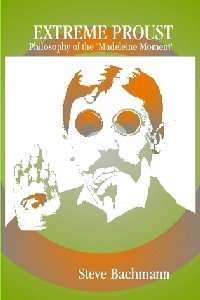In Catalonia, for the first few months, most of the actual power was in the hands of the Anarcho-Syndicalists, who controlled most of the key industries. The thing that had happened in Spain was, in fact, not merely a civil war, but the beginning of a revolution. It is this fact that the anti-Fascist press outside Spain has made it is special business to obscure...
...I had dropped more or less by chance into the only community of any size in Western Europe where political consciousness and disbelief in capitalism were more normal than their opposites. ... There is a sense in which it would be true to say that one was experiencing a foretaste of Socialism, by which I mean that the prevailing mental atmosphere was that of Socialism. Many of the normal motives of civilized life—snobbishness, money-grubbing, fear of the boss, etc.—had simply ceased to exist. The ordinary class-division of society had disappeared to an extent that is almost unthinkable in the money-tainted air of England; there was no one there except the peasants and ourselves, and no one owned anyone else as his master. Of course such a state of affairs could not last. It was simply a temporary and local phase in an enormous game that is being played over the whole surface of the earth. But it lasted long enough to have its effect upon anyone who experienced it. ... One had been in a community where hope was more normal than apathy or cynicism, where the word “comrade” stood for comradeship and not, as in most countries, for humbug. ... In that community where no one was on the make, where there was a shortage of everything but no privilege and no boot-licking, one got, perhaps, a crude taste of what the opening stages of Socialism might be like. ... The effect was to make my desire to see Socialism established much more actual than it had been before. ... This period which then seemed so futile and eventless is now of great importance to me. It is so different from the rest of my life that already it has taken on the magic quality which, as a rule, belongs only to memories that are years old. It was beastly while it was happening, but it is a good patch for my mind to browse upon. I wish I could convey to you the atmosphere of that time...
...The Spanish bourgeoisie saw their chance of crushing the labour movement, and took it, aided by the Nazis and by the forces of reaction all over the world... In essence it was a class war. If it had been won, the cause of the common people everywhere would have been strengthened. It was lost, and the dividend-drawers all over the world rubbed their hands. That was the real issue; all else was froth on its surface... All the considerations are likely to make one falter—the siren voices of a Petain or of a Gandhi, the inescapable fact that in order to fight one has to degrade oneself, the equivocal moral position of Britain, with its democratic phrases and its coolie empire, the sinister development of Soviet Russia, the squalid farce of left-wing politics—all this fades away and one sees only the struggle of the gradually awakening common people against the lords of property and their hired bumsuckers. The question is very simple
--George Orwell, HOMAGE TO CATALONIA. 50, 101-103, 233, 240, 245




No comments:
Post a Comment